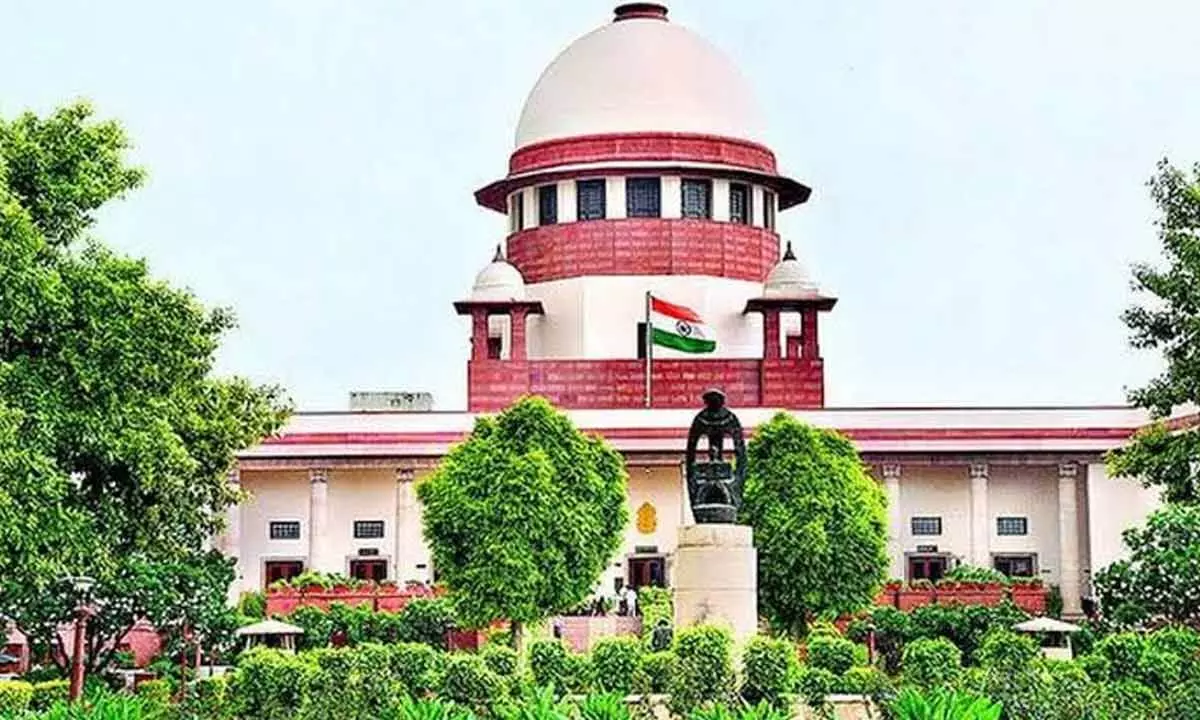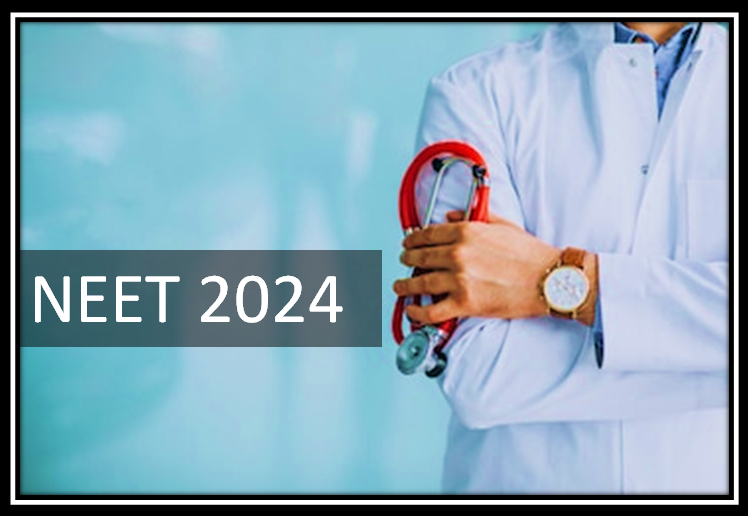In a significant ruling, the Supreme Court has issued a directive concerning stray counselling for NEET-UG admissions, emphasizing the necessity of a regulated framework to manage this complex process. Stray counselling involves the allocation of vacant seats in medical colleges after the standard admission process has concluded, providing an opportunity for students who may not have secured a seat initially. This directive aims to streamline the admission process by ensuring that transparency and fairness prevail in the allocation of these seats, ultimately benefitting students from various backgrounds.
NEET-UG Admission Deadline Until December 30
The Court’s ruling came in response to concerns raised about the existing stray counselling process, which, in many instances, lacked clarity and uniformity. Many stakeholders, including educational institutions and aspiring medical students, had expressed dissatisfaction, leading the Court to recognize the urgent need for an intervention. The Court acknowledged that the admissions process must not only adhere to legal guidelines but also respect the merit-based principles that govern educational opportunities in India.
By extending the NEET-UG admission deadline to December 30, the Court has provided students additional time to secure their places in medical colleges through these counselling sessions. This extension signifies a compassionate approach to the difficulties faced by students seeking admission, allowing them to explore various options without the pressure of tight deadlines.
Furthermore, the Supreme Court’s decision reinforces the importance of equitable access to education, particularly in the competitive field of medical studies. The directive ensures that students who might have been overlooked in the initial rounds of counselling still have a chance to pursue their medical careers. This ruling highlights the ongoing commitment of the Supreme Court to uphold educational integrity in the face of challenges faced by candidates and institutions alike. In essence, this directive aims to establish a more dependable admissions process that is fair, transparent, and accessible for all students involved.
Implications of the Extended NEET-UG Admission Deadline
The extension of the NEET-UG admission deadline until December 30 has a profound impact on students aspiring to secure a seat in medical colleges across India. This decision, mandated by the Supreme Court, aims to alleviate the pressure on candidates who may have faced extenuating circumstances that affected their application process. As a result, it is anticipated that many more students will take advantage of the extra time to finalize their applications, leading to a notable increase in the volume of submissions.
NEET-UG Admission Deadline Until December 30
Furthermore, the extension provides an essential opportunity for students who may have been unable to complete their registration due to various reasons, including personal or systemic challenges. This increased accessibility could foster a more diverse applicant pool, thereby enhancing the overall quality of education within medical colleges. Educational institutions are likely to receive a surge in applications, which can enrich the selection process by allowing medical colleges to consider a broader range of candidates. This influx may also prompt colleges to reassess their admission criteria or outreach efforts to accommodate the heightened applicant interest.
However, the extension poses challenges as well. Medical colleges must adapt to the increased volume of applications while maintaining a comprehensive evaluation process. The admissions process may become more complex, necessitating efficient management strategies to handle the large influx without compromising on the quality of assessments. Additionally, institutions may find themselves under pressure to expedite their selection techniques to meet the academic calendar deadlines. This scenario could potentially affect the logistical aspects of the admissions process, including interview schedules and counseling sessions.
Ultimately, the implications of this extended deadline are multifaceted, impacting both students and educational institutions significantly. As the admissions landscape shifts, it becomes vital for stakeholders to navigate the changes effectively, ensuring that students are afforded every opportunity to succeed in their medical careers.
Background on NEET-UG and Previous Admission Challenges
The National Eligibility cum Entrance Test for Undergraduates (NEET-UG) serves as a pivotal assessment for medical aspirants in India. Established in 2013, this standardized examination is designed to assess the knowledge and capabilities of students aspiring to secure admission into various undergraduate medical programs across the country. NEET-UG has become a defining criterion for countless aspiring doctors, as it consolidates admissions into a singular gateway, thereby promoting fairness and objectivity in the selection process.
Despite its critical role in shaping the future of medical education, NEET-UG admissions have often been accompanied by a multitude of challenges. Many students face obstacles ranging from bureaucratic inefficiencies to unforeseen procedural changes which complicate their admission journey. For instance, variations in state-level eligibility criteria and discrepancies in cut-off marks across different institutions have led to significant confusion, affecting students’ prospects. Furthermore, there have been recurring issues concerning seat allocation that create tension among candidates and educational institutions alike.
The landscape of NEET-UG has also been marred by legal controversies. Over the years, numerous petitions have been filed in courts challenging the validity of exam patterns, reservation policies, and eligibility norms. Such disputes have not only delayed the admissions process but have also raised questions regarding the transparency and fairness of the examination. One prominent controversy involved the Supreme Court’s intervention to address allegations of discrimination against certain groups, showcasing the ongoing need for legal oversight and reform in the admission system.
The recent Supreme Court ruling to extend the NEET-UG admission deadline until December 30 reflects the judiciary’s acknowledgment of these persistent challenges. By addressing these issues, the ruling aims to simplify the admission process for students and ensure that equitable access to medical education is upheld.
What This Means for Future Medical Aspirants
The recent directive from the Supreme Court to extend the NEET-UG admission deadline until December 30 has significant implications for future medical aspirants. This extension not only provides a reprieve for students scrambling to finalize their applications but also reflects a broader commitment to ensuring that aspiring medical professionals have ample opportunity to pursue their dreams amid ongoing challenges within the educational framework.
For students navigating this extended admissions process, it is crucial to remain organized and proactive. Keeping track of deadlines, understanding the necessary documentation, and frequenting official communication from educational bodies will be essential for submitting a complete application. This added time can be beneficial, allowing students to refine their personal statements, secure strong recommendation letters, and adequately prepare for interviews, ensuring they present themselves as strong candidates in the highly competitive field of medicine.
Moreover, the additional months lead to opportunities for students to deepen their understanding of medical concepts and build a stronger academic foundation. Many candidates can leverage this time to participate in preparatory courses, join study groups, or seek assistance from mentors in the medical field, ultimately enhancing their potential for success in the NEET-UG examination. : NEET-UG Admission Deadline Until December 30
In terms of lasting effects, this decision may also set a precedent for how medical education is structured in India moving forward. The ripple effects of this ruling could influence student choice, potentially leading to a surge in applications as applicants feel empowered by the new timeline. This may also compel institutions to adapt their admission processes, requiring them to be more accommodating and responsive to the needs of students in a post-pandemic world.
Overall, the directive highlights the need for continuous dialogue regarding educational policies and their impact on student outcomes and the future of medical education in India.





